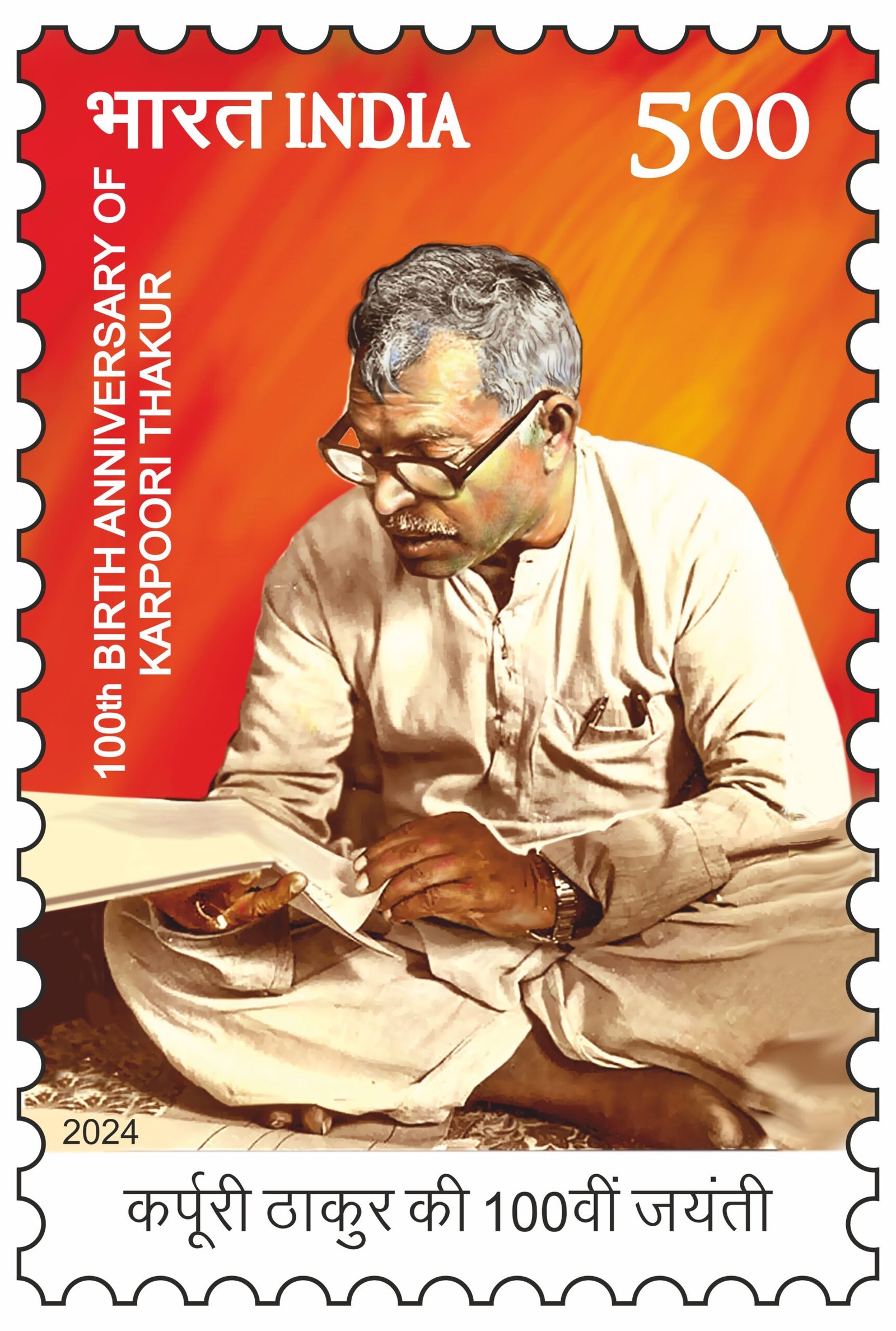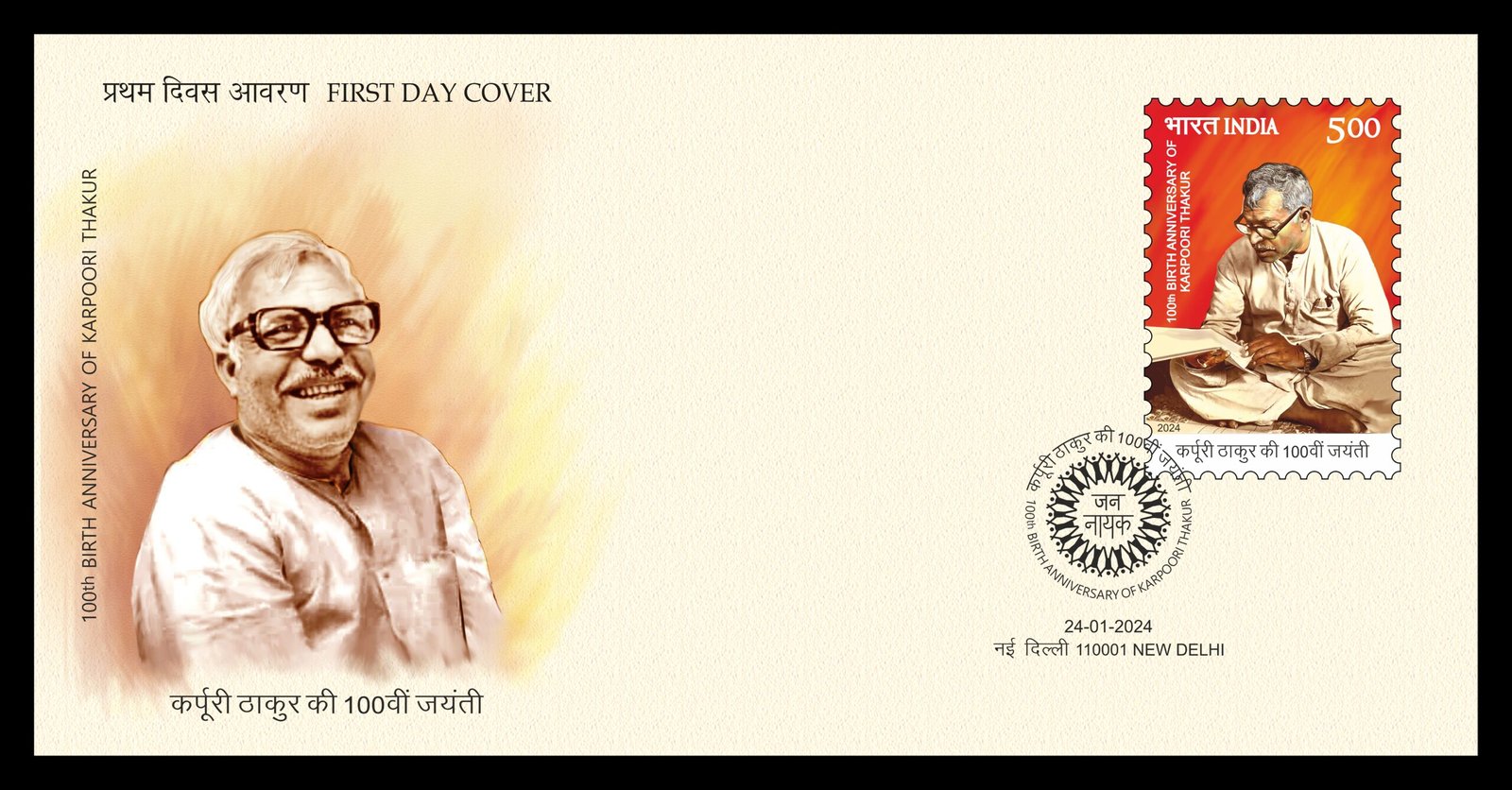100th Birth Anniversary of Karpoori Thakur

Technical Data
| Date of Issue | January 24, 2024 |
|---|---|
| Denomination | Rs. 5 |
| Quantity | 201,600 |
| Perforation | 14¼ x 14½ |
| Printer | Security Printing Press, Hyderabad |
| Printing Process | Wet Offset |
| Watermark | No Watermark |
| Colors | Multicolor |
| Credit (Designed By) | Sh. Sankha Samanta |
| Catalog Codes |
Colnect codes IN 2024.01.24-01 Michel IN 3976 Yvert et Tellier IN 3621 Stanley Gibbons IN 3893 |
| Themes | Anniversaries and Jubilees | Famous people | Men | Politicians |
Early Life and Background
Karpoori Thakur, fondly remembered as Jan Nayak (People’s Leader), was born on January 24, 1924, in Pitaunjhia village of Samastipur, Bihar. Coming from the humble ‘Nai’ (barber) community, he rose from modest beginnings to become a towering figure in Indian politics. His childhood was shaped by financial hardship and the socio-economic realities of pre-independence Bihar, yet his determination and empathy for the underprivileged laid the foundation of his lifelong mission for social justice.
Role in the Freedom Struggle
During India’s fight for independence, Karpoori Thakur actively participated in the Quit India Movement (Bharat Chhodo Andolan) and was even imprisoned for his role. Inspired by stalwarts like Loknayak Jayaprakash Narayan and Dr. Ram Manohar Lohia, he embraced socialist ideals and dedicated himself to uplifting marginalized communities.
Political Journey and Leadership
Karpoori Thakur entered mainstream politics with a strong commitment to egalitarian values. He was first elected to the Bihar Legislative Assembly, where his advocacy for the downtrodden gained immense public trust. Over the years, he served in key leadership positions:
- Deputy Chief Minister of Bihar in 1967
- First Non-Congress Chief Minister of Bihar in 1970–71
- Chief Minister again in 1977
His tenure was marked by policies that transformed Bihar’s socio-political landscape.
Champion of Social Justice
One of Karpoori Thakur’s most enduring contributions was the implementation of reservation for Other Backward Classes (OBCs) in government jobs and educational institutions. His visionary policies sought to correct historical imbalances and give marginalized communities a fair chance at progress. His simple lifestyle, accessibility, and dedication earned him the title Jan Nayak.
Legacy and Impact
Karpoori Thakur passed away in 1988, but his legacy continues to inspire generations. He is remembered as a leader who stood for equality, education, healthcare, and grassroots empowerment. His life is a reminder of how principled leadership can bring about transformative social change.
The Commemorative Stamp
To honor his 100th Birth Anniversary, the Department of Posts has issued a Commemorative Postage Stamp on Karpoori Thakur. This special release celebrates his enduring contributions to Indian society and salutes his tireless struggle for the downtrodden. For philatelists, this stamp is more than a collectible — it is a symbol of India’s journey toward social justice and inclusivity.
First Day Cover

